- Home
- >
- Preservation Archaeology Blog
- >
- Indigenous Peoples’ Day 2024 Recap
(October 25, 2024)—This past month, the Archaeology Southwest team had the privilege of tabling at Indigenous Peoples’ Day Fest in downtown Phoenix on October 14, 2024. The City of Phoenix designated Indigenous Peoples’ Day as a city holiday in April 2023. The day is now a federal holiday that falls on Columbus Day.
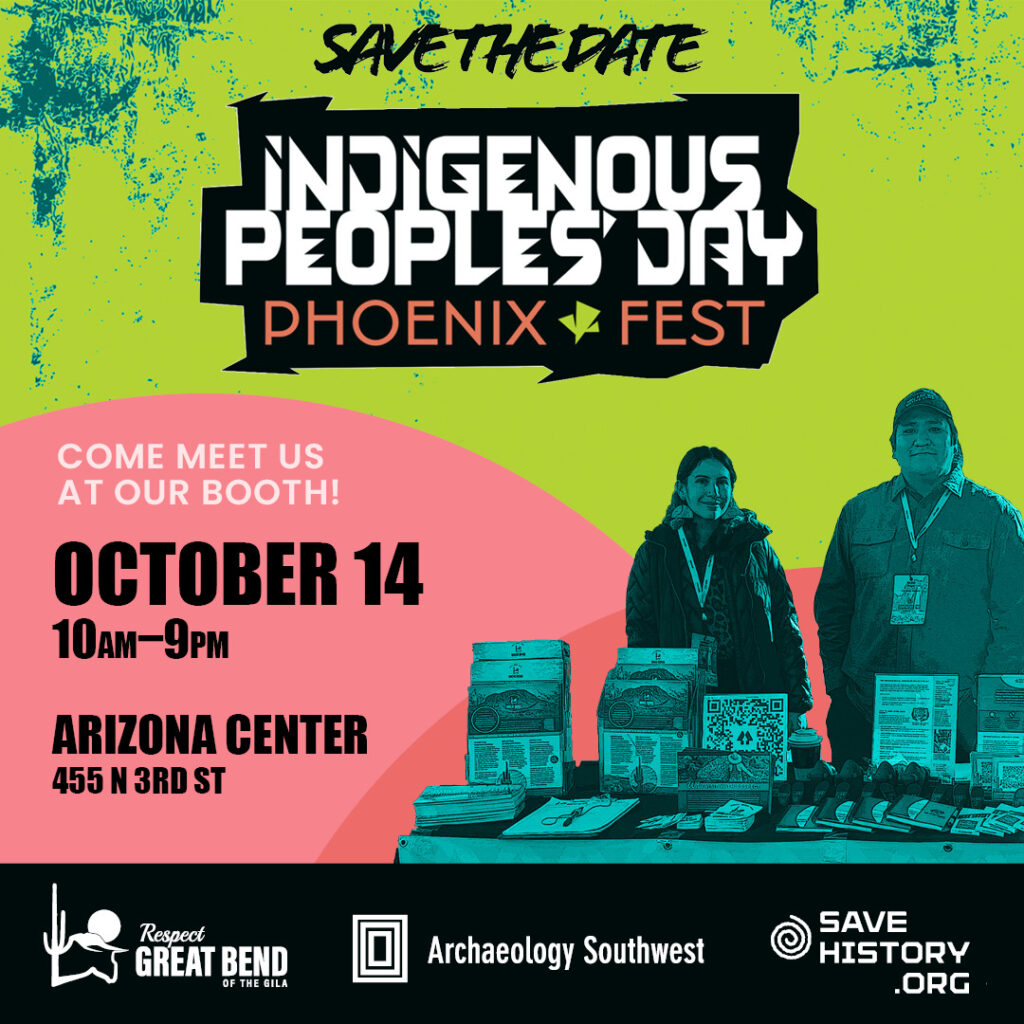
Columbus Day marks Christopher Columbus’s “discovery” of what are now called the Americas, where Indigenous Peoples had been living for tens of thousands of years prior to Columbus’s landing. Of course, he thought he had found India; hence the term “Indians” being used to refer to modern-day Indigenous Peoples and Tribal Nations, federally recognized or not. Designating Indigenous Peoples’ Day on Columbus Day is intentional—a powerful way for Indigenous Peoples, in the United States at least, to say “We are still here!” and to reject the narrative of Columbus’s discovery in 1492.
Last year, Archaeology Southwest also participated in Indigenous Peoples’ Day, but our representation was limited to our Directors of Tribal Collaboration and the Save History team. We were honored to be invited back this year, and this time Archaeology Southwest, Respect Great Bend, and Save History all set up adjacent booths! Caitlynn Mayhew, Sara Anderson, Elysia Hansel, Anastasia Walhovd, Shannon Cowell, and I participated with some much-needed help from volunteers from Sierra Club’s Grand Canyon Chapter—thank you!
The all-day fest featured many Indigenous businesses, nonprofits, and cooperatives, as well as community organizers and activists. Food trucks offered modern and traditional foods, and there was a cultural stage where Tribal members performed traditional dance and songs and a music stage that blasted a wide variety of genres old and new. It was truly awesome to see so many fellow Indigenous relatives take up space right in the middle of downtown Phoenix, to smell sage burning in the air, and to share some “Indian Tacos” with my family and friends in the sweep of it all.
I am truly happy Archaeology Southwest was able to join in the day’s events. This is one way we are hoping to build relationships with Tribal members, Nations, and communities. To Cahokia Phoenix, the main organizer of this powerful event, our Archaeology Southwest team says “Ahé’hee’!” (thank you in Diné Bizaad). My colleagues offer some of their own thoughts and reflections on this important and meaningful day.
Caitlynn Mayhew, Diné
As a Phoenix metro resident, I was happy to join our Tucson crew at Indigenous Peoples’ Day 2024. What a day! I floated between the main Archaeology Southwest table and the Save History table.
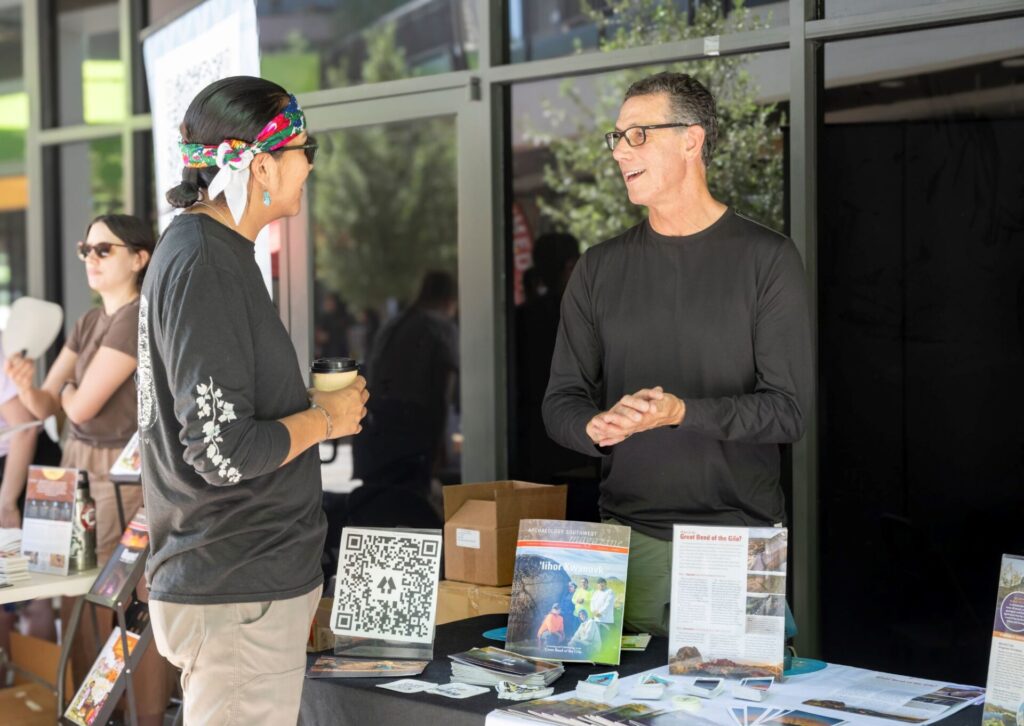
I would like to highlight my time with Save History, as I often don’t get to work directly with Shannon Cowell (BIA Collaboration Director & Preservation Archaeologist) and Anastasia Walhovd (Preservation Archaeologist). I appreciated the ability to share Save History’s message and the resources our BIA team has to offer. Among all the curious visitors, we had several who stopped to share stories of how vandalism/looting has impacted their community—accounts of sites they’ve recently visited that have been desecrated and their expressed concerns of not knowing who to contact about the crime. These stories made me feel we were in the right place at the right time. We heard directly from the public about issues that matter to them and how we can be of service.
Heritage sites are so significant to Indigenous Peoples, but many face the painful reality of seeing these sites looted or vandalized, often with little to no accountability for the perpetrators. These are not victimless crimes! This is where our presence as an organization can make a difference to Tribal Nations and communities. I don’t think our audience that day expected to find a streamlined system for reporting looted or vandalized sites on Tribal lands. This was my key takeaway from the event—providing a space for victims to be seen and heard while also providing resources to find and prosecute those involved in these crimes.
If you want to report looting, vandalism, or the sale of artifacts, call the Save History tipline at 1-833-ENDLOOT (1(833)-363-5668) or Submit a Tip here.
Anastasia Walhovd, Red Cliff Band of Lake Superior Chippewa
Spending Indigenous Peoples’ Day at the Arizona Center was such a blast! My work with the Archaeological Resources Protection Act (ARPA) Assistance Initiative has five set goals in mind: to better detect archaeological resource crime (ARC), respond to ARC, prevent ARC, restore sites affected by ARC, and collaborate with Tribes in doing this work. Coming to events like Indigenous Peoples’ Day helps us better reach our goals of preventing ARC and detecting ARC. How does having a table at Indigenous Peoples’ Day do that?
When it comes to detecting ARC, we need more people who are ready and able to report it when they see it. A personal goal of mine during Indigenous Peoples’ Day was to make sure everyone left knowing exactly where to report ARC—whether that was on SaveHistory.org’s tip submission page or through our phone tip line at 1-833-ENDLOOT.
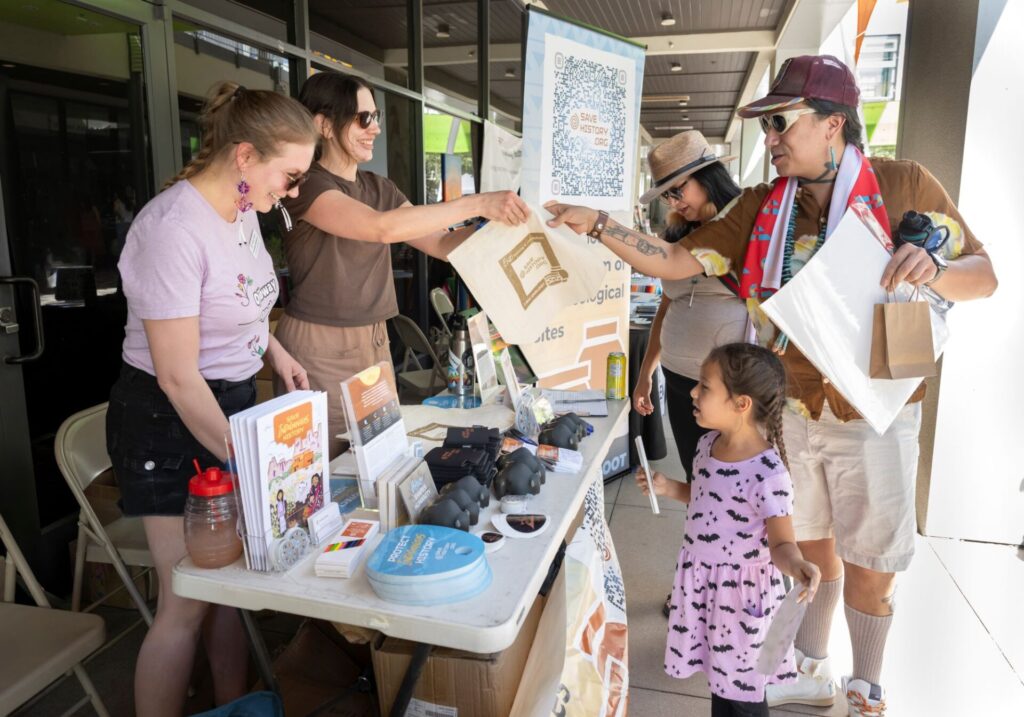
Indigenous Peoples’ Day was a great place to talk to Tribal members who live on and visit their Tribal lands. If you are frequently out hiking back home on your reservation or Tribal lands and you see something that looks like ARC, we want you to know that if you call our tip line or submit a tip through our website, someone is on the other side listening. The power to respond to these crimes is in the hands of the people who see it out on the landscape and report it.
When it comes to preventing ARC, we need to get the word out about how these crimes are not only illegal but also unethical. We can’t do that if we don’t shout it from the rooftops! Cahokia PHX probably wouldn’t let me climb onto the actual roof, so I settled for a table to share this message. We gave away lots of print materials about this issue, but my favorite take-aways were our Save Indigenous History Children’s Activity Books (with colored pencils, even!). You can download your own copy of the activity book here for free.
We also gave away fun swag like fans, totes, magnet calendars, and more that share our message of saving history and protecting Indigenous heritage. Seeing folks of all ages—youngsters to elders—share their own stories about seeing looted and vandalized sites brought home to me yet again how truly important this work is to people who live in the communities most deeply affected by this insidious destruction. We’ll hopefully see you next year at Indigenous Peoples’ Day!
Sara Anderson
Attending Indigenous Peoples’ Day 2024 was a truly meaningful experience for Archaeology Southwest (ASW). It was a lovely—though sweltering—day, and we felt honored to be part of such a powerful event organized by Cahokia PHX. Everyone we spoke with was incredibly welcoming.
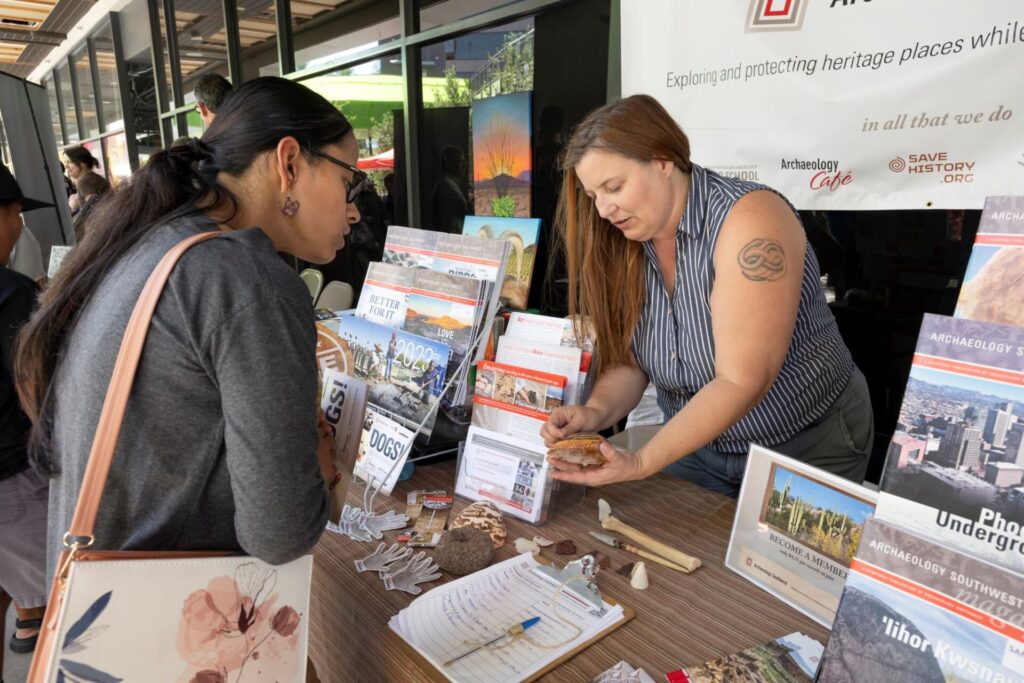
As I looked down our row of tables featuring ASW, Respect Great Bend, and Save History, it was heartening to see so many people engaged in conversations about cultural heritage and preservation. Being there reaffirmed the importance of our work in building relationships with Tribal Nations and supporting Indigenous-led efforts. This event helped us connect with the community and reminded me how much we have to learn and share through these interactions. I left feeling inspired and grateful to be part of this journey toward deeper collaboration and understanding.
Shannon Cowell
I attended Indigenous Peoples Day last year and found it provided an important opportunity to engage and listen to Indigenous people who are not directly involved in archaeology or cultural resource management at an official level.
Our ARPA assistance team is hyper-focused on illegal excavation and graverobbing, yet many Indigenous people see archaeological excavation as one and the same. I heard a story about an excavation project that went viral on social media. Activists shared photos of funerary features and pottery to demonstrate disrespect by archaeologists, and to me, the images felt visually similar to any illegal excavation crime scene.
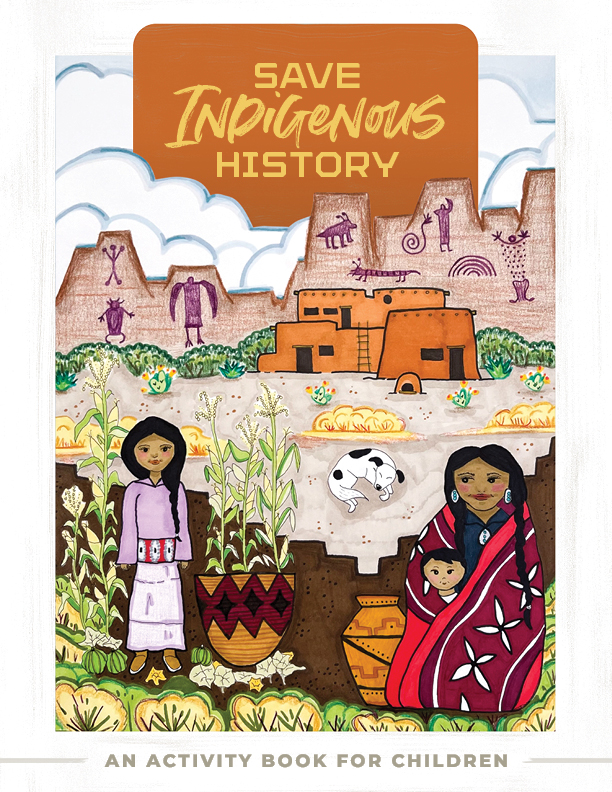
The disconnect between cultural resource regulations and the priorities of descendant communities, especially those outside Tribal Historic Preservation Offices who formally consult on projects, seems especially difficult to bridge. Other people shared concerns about Ancestors still imprisoned in museums and waiting to come home. These problems are much larger and more entrenched, but the treasure-hunting mentality (and what I see as a related urge to endlessly collect data with questionable methods of consent) is the root cause.
These conversations are a good reminder to hold all the issues together in mind as we do our work at Archaeology Southwest. Our ARPA team’s priorities may be out of step by some measures—looting by bad actors may be a drop in the bucket next to damage caused by construction and infrastructure development via compliance archaeology—but many people stopped by and shared their excitement and support for the work we do to curb cultural resource crime. It doesn’t hurt that we have nifty swag, too!
Explore the News
Related to This
-
Project Save History & the ARPA A...